
Arcanist
As a swarm of fiery elementals approaches an elven woman, she raises her hand summoning a blazing ball of fire above her. The woman closes her eyes and focuses as the ball of fire shifts into a confluence of ice and water. With just seconds to spare, she swiftly shapes the ball of ice into a cone-shaped blast aimed at the elementals which evaporate in a hail of icy shards and freezing air.
A dwarven adventurer looks in horror as his companion falls unconscious off a cliff, having been struck by a mortal blow. Rushing to the edge, in one fluid cast, the dwarf causes his ally to slow in his fall and be wrapped in a shield of protective energy for good measure.
A human scholar pores over his notes about thunderclap and lightning bolt. Suddenly realizing something he hadn't before, the scholar jumps to his feet, summons his magical power, and successfully invokes a sphere of exploding bolts around him. Now all he needed was a name for his newly invented spell.
All these spellcasters are arcanists, mages with an inherent connection to and intuition for magic, supplemented by intense study of their powers. These heroes are exceptionally skilled at tuning their magic to the situation at hand, tweaking spells and blending new magical combinations to tackle any challenge.
Arcane Intuition
Arcanists are born with an innate connection to magic, much like a sorcerer, granting them the inherent ability to produce magical spells. However, like wizards, arcanists take a structured, academic approach to the understanding of their magical power. Through their studies and experiences, arcanists develop a powerful intuition regarding the mechanics of magic. This comprehension of the underpinnings of magic grants arcanists greater control over their spells, allowing them to twist one spell to be more like another or even combine two spells together.
Versatile Magic
Combining their strengths, an arcanist's inherent connection to the arcane and their academic understanding of magic allow them to utilize their magical powers in surprising and novel ways. Expert arcanists are unmatched in their spontaneous magical versatility and their ability to produce new, unique spells. An arcanist is rarely caught off guard, able to use each one of their spells to overcome a myriad of challenges.
Arcanists frequently set out on adventure to seek out greater knowledge and understanding of their magical
power. In an adventuring party, arcanists serve as a
powerful source of adaptable magic, able to tailor their
spells to each challenge the group faces.
Creating an Arcanist
When you create your arcanist, consider two questions in parallel. First, where did you get your magical powers from? Were you blessed by some powerful being, or maybe magical power flows through your bloodline? Second, what did you do to study and master your arcane power? Did you join a college of wizards, learning to see your magic in an academic light? Or perhaps you immersed yourself in a study of gods and other powerful beings to try and discern the source of your power? In any case, consider the relationship between your magical abilities and your efforts to study and understand them.
Arcanists are known for their ability to tune spells to their liking and often have preferences for certain types of spells/magics. Look ahead at the branches of study you will choose from at 2nd level. Are you particularly dedicated to one school of magic or a few select spells? Maybe you have a vested interest in the magic surrounding the soul and the boundary between life and death? Or are you dedicated to a divine being or fiend who plays some role in your powers?
Lastly, consider your purpose in setting off on adventure. Are you seeking experience to grow your arcane power and gain greater expertise in spellcasting? Or, maybe you are curious about the origins of your magic and are seeking answers that cannot be found in a library. Perhaps some tragedy befell you or a loved one and you are trying to understand the cause?
Quick Build
You can make an arcanist quickly by following these suggestions. First, make Intelligence your highest ability score, followed by Constitution or Dexterity. Second, choose the sage background. Third, choose the firebolt, gust, light, and thunderclap cantrips along with the
1st-level spells mage armor and
burning hands.














The Arcanist Table
| Level | Proficiency Bonus |
Features | Cantrips Known |
Spells Known |
1st | 2nd | 3rd | 4th | 5th | 6th | 7th | 8th | 9th |
|---|---|---|---|---|---|---|---|---|---|---|---|---|---|
| 1st | +2 | Spellcasting, Tweak Spell | 4 | 2 | 2 | — | — | — | — | — | — | — | — |
| 2nd | +2 | Branch of Study | 4 | 3 | 3 | — | — | — | — | — | — | — | — |
| 3rd | +2 | Spell Blending | 4 | 4 | 4 | 2 | — | — | — | — | — | — | — |
| 4th | +2 | Ability Score Improvement | 5 | 5 | 4 | 3 | — | — | — | — | — | — | — |
| 5th | +3 | Spell Blending (Damage Type) | 5 | 6 | 4 | 3 | 2 | — | — | — | — | — | — |
| 6th | +3 | Branch Feature, Arcane Consolidation (1st Level) | 5 | 7 | 4 | 3 | 3 | — | — | — | — | — | — |
| 7th | +3 | ─ | 5 | 8 | 4 | 3 | 3 | 1 | — | — | — | — | — |
| 8th | +3 | Ability Score Improvement | 5 | 9 | 4 | 3 | 3 | 2 | — | — | — | — | — |
| 9th | +4 | Spell Blending (Range), Spell Writer (Max 3rd) | 5 | 10 | 4 | 3 | 3 | 3 | 1 | — | — | — | — |
| 10th | +4 | Branch Feature, Arcane Consolidation (2nd Level) | 6 | 11 | 4 | 3 | 3 | 3 | 2 | — | — | — | — |
| 11th | +4 | ─ | 6 | 12 | 4 | 3 | 3 | 3 | 2 | 1 | — | — | — |
| 12th | +4 | Ability Score Improvement | 6 | 12 | 4 | 3 | 3 | 3 | 2 | 1 | — | — | — |
| 13th | +5 | Spell Blending (Targets/Area), Spell Writer (Max 5th) | 6 | 13 | 4 | 3 | 3 | 3 | 2 | 1 | 1 | — | — |
| 14th | +5 | Branch Feature, Arcane Consolidation (3rd Level) | 6 | 13 | 4 | 3 | 3 | 3 | 2 | 1 | 1 | — | — |
| 15th | +5 | ─ | 6 | 14 | 4 | 3 | 3 | 3 | 2 | 1 | 1 | 1 | — |
| 16th | +5 | Ability Score Improvement | 6 | 14 | 4 | 3 | 3 | 3 | 2 | 1 | 1 | 1 | — |
| 17th | +6 | Spell Blending (Hit/Save), Spell Writer (Max 7th) | 6 | 15 | 4 | 3 | 3 | 3 | 2 | 1 | 1 | 1 | 1 |
| 18th | +6 | Branch Feature, Arcane Consolidation (4th Level) | 6 | 15 | 4 | 3 | 3 | 3 | 3 | 1 | 1 | 1 | 1 |
| 19th | +6 | Ability Score Improvement | 6 | 15 | 4 | 3 | 3 | 3 | 3 | 2 | 1 | 1 | 1 |
| 20th | +6 | Arcane Supremacy | 6 | 15 | 4 | 3 | 3 | 3 | 3 | 2 | 2 | 1 | 1 |
Class Features
As an Arcanist, you gain the following class features:
Hit Points
- Hit Dice: 1d6 per arcanist level
- Hit Points at 1st Level: 6 + your Constitution modifier
- Hit Points at Higher Levels: 1d6 (or 4) + your Constitution modifier per arcanist level after 1st.
Proficiencies
- Armor: None
- Weapons: Daggers, darts, slings, quarterstaffs, light crossbows
- Tools: None
- Saving Throws: Intelligence, Constitution
- Skills: Choose two skills from Arcana, History, Insight, Investigation, Medicine, and Religion
Equipment
You start with the following equipment, in addition to the equipment granted by your background:
- (a) a quarterstaff or (b) a dagger
- (a) a light crossbow and 20 bolts or (b) any simple weapon
- (a) a component pouch or (b) an arcane focus
- (a) a scholar's pack or (b) an explorer's pack
Spellcasting
Beginning at 1st level, your intuitive understanding of magic allows you to produce spells through your connection to the arcane.
Cantrips
At 1st level, you know four cantrips of your choice from the arcanist spell list. You learn additional arcanist cantrips of your choice at higher levels, as shown in the Cantrips Known column of the Arcanist table.
Spell Slots
The Arcanist table shows how many spell slots you have to cast your spells of 1st level and higher. To cast one of these arcanist spells, you must expend a slot of the spell’s level or higher. You regain all expended spell slots when you finish a long rest.
Spells Known of 1st Level or Higher
You know two 1st-level spells of your choice from the arcanist spell list. The Spells Known column of the Arcanist table shows when you learn more arcanist spells of your choice from this feature. Each of these spells must be of a level for which you have spell slots on the arcanist table.
Additionally, when you gain a level in this class, you can choose one of the arcanist spells you know from this feature and replace it with another spell from the arcanist spell list. The new spell must also be of a level for which you have spell slots on the Arcanist table.
Spellcasting Ability
Intelligence is your spellcasting ability for your arcanist spells. You use your intelligence whenever a spell refers to your spellcasting ability. In addition, you use your intelligence modifier when setting the saving throw DC for a intelligence spell you cast and when making an attack roll with one.
Spell attack modifier = your proficiency bonus +
Spellcasting Focus
You can use an arcane focus as a spellcasting
focus for your arcanist spells.
Tweak Spell
At 1st level, you begin learning how to subtly alter your spells to be like others in your repertoire. When you cast a spell or cantrip you may choose to apply one of the following options:
- You change one of the damage types of your spell to a damage type from another arcanist spell/cantrip you know.
- You change the range of your spell to match the range of another arcanist spell/cantrip you know.
- You change the area of your spell to match the area of another arcanist spell/cantrip you know. The spell you are tweaking must already have an area to use this option.
- You can change the type of saving throw involved in your spell to a saving throw from another arcanist spell/cantrip you know (e.g. you change the dexterity saving throw
from fireball to the charisma saving throw from banishment).
You may do this a number of times equal to your intelligence modifier before completing a long or short rest. You may apply multiple options to a single spell, but each selected option requires expending one use of this feature.
Branch of Study
At 2nd level, you specialize your magical exploration into a particular branch of study, representing the approach you take towards understanding your arcane power. The branch you choose grants you features at levels 2, 6, 10, 14, and 18.
In addition, you gain spells according to your chosen branch at the appropriate arcanist levels. Each of these spells counts as an arcanist spell for you and does not count against the number of arcanist
spells you know.
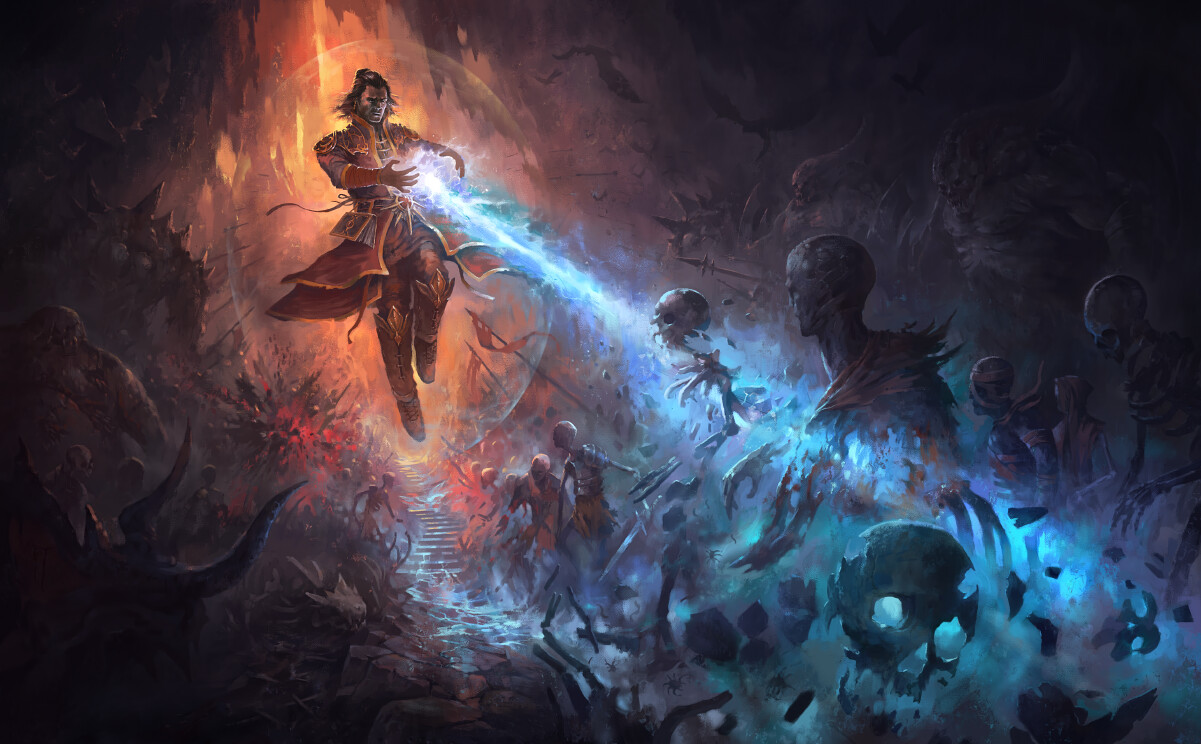











Spell Blending
Beginning at 3rd level, extensive study of your arcane power has granted you the knowledge needed to blend your spells in unique combinations. On your turn, you may use your action to cast two spells as if they were one. Both spells must have a casting time of one action, bonus action, or reaction, and only one of the spells can be a cantrip. The two spells used in the blended spell are referred to as "component spells" in the following paragraphs.
A blended spell counts has a level equal to the combined level of both component spells. If one of the component spells is a cantrip, the blended spell level equals the level of the other spell plus one. Casting a blended spell requires expending a spell slot of a level equal to or greater than the spell's level, in place of spell slots for each component spell.
A blended spell counts as casting one spell with the effects of both component spells. You choose the targets or areas of each component spell separately based on the normal ranges and targets of each component spell, and each retains its normal duration. In addition, you choose which component spell's effects occur first, if the order matters. Both component spells may require concentration, in which case both effects end if you lose concentration. Lastly, when you use the "tweak spell" feature to modify a blended spell, you may modify one or both of the component spell's effects.
As you gain arcanist levels, you gain further ways to blend the effects of your spells:
- Damage Type: At 5th level, when you blend two spells that deal damage, you may choose to change the damage type(s) of one of the component spells to match a damage type of the other.
- Range: At 9th level, you may change the range of one of your component spells to match the range of the other.
- Targets/Area: At 13th level, you may change the targets/area of one of your component spells to match the targets/area of the other. If this causes a spell that normally affects one target to affect multiple targets or gain an area of effect, the level of the blended spell increases by one.
- Hit/Save: At 17th level, you may replace the attack roll or saving throw required by one of your component spells with an attack roll or saving throw involved with the other component spell.
If you replace a saving throw with an attack roll, the level of the blended spell increases by one, with one exception: If the original spell dealt half damage on a successful saving throw, the effect now deals full damage on a hit and no damage on a miss, and the blended spell's level does not increase by one.
Ability Score Improvement
When you reach 4th level, and again at 8th, 12th, 16th, and 19th level, you can increase one ability score of your choice by 2, or you can increase two ability scores of your choice by 1. As normal, you can’t increase an ability score above 20 using this feature.
Using the optional feats rule, you can forgo taking this feature to take a feat of your choice instead.
Arcane Consolidation
At 6th level, you learn to consolidate bits of your magical energy to produce more powerful spells. As a bonus action, you can sacrifice multiple low level spell slots to create one spell slot of a higher level. The level of the new spell slot equals the combined levels of each sacrificed slot.
The level of the spell slots you can sacrifice and create depend on your arcanist level:
- 6th Level: Sacrifice 1st level slots. Create up to 3rd level.
- 10th Level: Sacrifice up to 2nd level. Create up to 5th level.
- 14th Level: Sacrifice up to 3rd level. Create up to 6th level.
- 18th Level: Sacrifice up to 4th level. Create up to 7th level.
Spell Writer
At 9th level, you work out the kinks and inefficiencies in one of your favorite blended spells, writing a whole new spell that you give a name.
Choose a blended spell that you can cast using the spell blending feature, including any blended damage types, ranges, targets/areas, and hits/saves. That specific blended spell's level is one lower than the original blended spell's level for you. The spell must be 3rd level or lower after the level reduction.
This new spell counts as an arcanist spell and is added to your spell list. It does not count against your number of arcanist spells known. Lastly, you choose the new spell's school of magic from one of the component spells' schools.
- At level 13, you create another spell up to 5th level.
- At level 17, you create another spell up to 7th level.
Spell Writer and New Blending Options
When you gain a new option for blending spells ("targets/area" at 13th level and "hit/save" at 17th level), you may retroactively apply the new option to your previously invented spells. However, you must choose to do so as soon as you gain the new option and you cannot undo your choice once made.
In addition, the spell must still follow its maximum level restriction after any change (e.g. if your first written spell was already 3rd level, you can not increase its level to 4 when you change its targets/area or hit/save).
Arcane Supremacy
Beginning at 20th level, you are exceptionally skilled at the spells you have written. You may cast each of your written spells (from the spell writer feature) once without expending a spell slot. After casting a spell in this manner, you can not do so again until you finish a long rest.
Branches of Study
While all arcanists seek to understand the mechanics behind their magical ability, they often choose to do so in different ways. These unique approaches are represented by the following branches of study. Within each branch, arcanists develop different specialties in terms of magical abilities they develop and particular spells they master.
Arcane Savant
Some arcanists are born with a natural connection to a particular school of magic. These arcanists, known as arcane savants, often focus their studies and practice on that school to develop mastery over that subset of magic.
Arcane savants are frequently leading magical experts on their specialized school, acting as authorities on the knowledge surrounding applications for and the properties of that school's spells.
Arcane Savant Spells
At 2nd level, when you select this branch of study, choose one of the following schools of magic: Abjuration, Conjuration, Divination, Enchantment, Evocation, Illusion, Necromancy, or Transmutation. The chosen school becomes your "specialty school", which affects the features granted by the arcane savant branch of study.
You learn extra spells from your specialty school, as shown in the following chart. These spells can come from any spell list.
| Arcanist Level | Spells |
|---|---|
| 2nd | Two 1st Level Spells from your Specialty School |
| 3rd | Two 2nd Level Spells from your Specialty School |
| 5th | Two 3rd Level Spells from your Specialty School |
| 7th | Two 4th Level Spells from your Specialty School |
| 9th | Two 5th Level Spells from your Specialty School |
Preferred Magic
Beginning at 2nd level, you have a strong inclination towards spells from your specialty school, making it easier to copy their attributes into your other spells.
When you use the tweak spell feature to copy a property from a spell that is part of your specialty school, you do not expend a use of tweak spell.
School Recognition
Beginning at 6th level, your familiarity with your specialty school becomes sufficiently strong that you effortlessly recognize related spells and effects. When you observe or are affected by a spell or effect from your specialty school, you immediately know the name and level of the spell and its effects.
Intuitive Blending
Beginning at 10th level, blending spells from your specialty school becomes second nature to you, making it less taxing to perform.
When you use the spell blending feature and one or both of
the component spells come from your specialty school, you
regain an expended spell slot up to half the level of the
blended spell (rounded down).
Know Your Weaknesses
Beginning at 14th level, your awareness of the
weaknesses and limitations of spells in your specialty
school allows you to more easily avoid and resist their
effects. You gain the following benefits:
- You have advantage on saving throws to resist the effects of spells from your specialty school.
- Creatures have disadvantage on attack rolls to hit you with spells from your specialty school.
Second Passion
By 18th level, you have expanded your expertise and
picked up another focus for your arcane power. Choose a
second specialty school. You gain the benefits of the
"preferred magic", "school recognition", "intuitive
blending", and "know your weaknesses" features for the
new school.
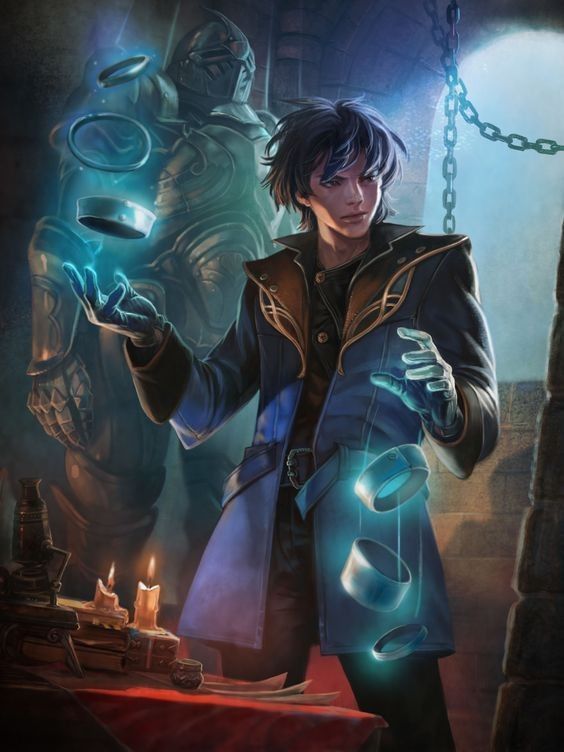













Twilight Sage
Many mages throughout history have studied how magic interacts with the soul and death. Twilight sages know that magic permeates the essence of life itself, and they study how that magic persists following the death or "the twilight of life". If life and soul can be controlled and understood, the underlying twilight magic can be harnessed.
Twilight Sage Spells
| Arcanist Level | Spells |
|---|---|
| 2nd | False Life, Hex |
| 3rd | Gentle Repose, Wither and Bloom |
| 5th | Revivify, Vampiric Touch |
| 7th | Blight, Death Ward |
| 9th | Enervation, Raise Dead |
Twilight Magic
Beginning at level 2, your soul itself becomes partially infused with the weave of magic, empowering it when you cast spells. Whenever you cast a spell, you gain temporary hit points equal to the level of the spell slot expended.
If you gain temporary hit points from a spell you cast, they are added to those you gain from this feature and treated as one pool of temporary hit points.
Soul Speaker
At 6th level, you learn to reach into the residual soul essence of recently deceased creatures to read their memories. Once per long rest, you may cast the spell speak with dead on the corpse of a creature that has died within 10 days, without expending a spell slot.
The spell acts differently when cast this way. Instead of allowing the corpse to speak, you hear the answers to your questions in your mind as you probe the lingering soul memories. The memories you find are generally brief and cryptic, but are also always true.
Siphon Death
Beginning at 10th level, you can absorb the magical
energies a creature releases on death to restore your
own spellcasting power. When a medium or larger
creature dies within 60 feet, you can use your reaction
to recover spell slots with a combined level equal to or
less than half your arcanist level (rounded down). Each
spell slot recovered this way must be 5th-level or less.
Once you use this feature, you cannot do so again until
you complete a short or long rest.
Persistent Soul
Beginning at 14th level, the twilight magic flowing through
your soul makes you unnaturally hard to kill and improves
your ability to reunite souls and bodies. This grants you the following benefits:
- Whenever you make a death saving throw, you do so with advantage.
- The duration a creature can be dead and still be affected by spells like revivify or raise dead is doubled if you are casting the spell.
- You can be dead for up to ten times as long as normal and still be affected by spells like revivify or raise dead.
Spirit and Body
Beginning at 18th level, you have mastered control over your own spirit and soul, granting you the following benefits.
Project Spirit
Once per long rest, as a bonus action, you can separate your spirit from your body and become incorporeal for up to one minute, while temporarily transferring your corporeal body to a pocket of the ethereal plane. While in this form, you can pass through solid objects and have immunity to nonmagical bludgeoning, slashing, and piercing damage. In addition, while in your incorporeal form, when you hit a creature with a spell or a creature fails a saving throw to resist one of your spells, that creature takes 2d8 necrotic damage.
You can return to your physical form early as a bonus action. When your incorporeal form ends, you resummon your body to your current space and your spirit and body are rejoined.
If you occupy the same spot as a solid object or creature when your spirit form ends, you are immediately shunted to the nearest unoccupied space that you can occupy and take force damage equal to twice the number of feet you are moved.
Inhabit Corpse
If you die, you may have your spirit attempt to inhabit the corpse of a small or medium humanoid creature within 60 feet. The body must be sufficiently intact to sustain life. If you do so, you gain three levels of exhaustion. In addition, you have 0 current hit points and must make death saving throws to stabilize as normal.
If you stabilize, you successfully inhabit the new body. Your strength, dexterity, and constitution scores become equal to those the creature had in life (maximum of 20); these changes can affect your AC, hit points, etc. Your other statistics remain the same.
If you fail to stabilize, you die again and can only be restored to life by means of a true resurrection or wish spell.
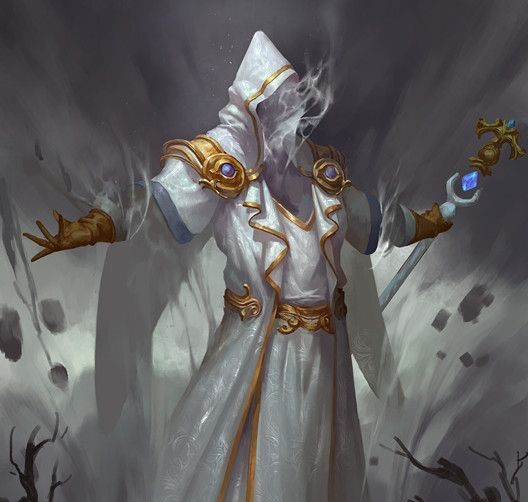











Elementalist
An elementalist seeks to understand the chaotic nature of the elemental planes. As their comprehension grows, elementalists learn to attune to each of the elemental
planes and gain abilities associated with that element.
The strongest elementalists can attune to all four planes
at once, calling upon the powers of all the elements at will.
Elemental Attunement
At 2nd level, you learn to attune yourself to the elemental planes, gaining the strengths of different elements as each situation requires. Once per short rest, as a bonus action, you can switch your elemental attunement to either air, earth, fire, or water. Each of these elements grants you different benefits as you gain arcanist levels.
You may change the damage of a spell to the associated damage type of the element you are currently attuned to, without expending a use of tweak spell. The damage types associated with each element are as follows:
- Lightning - Air Attunement
- Acid - Earth Attunement
- Fire - Fire Attunement
- Cold - Water Attunement
Elementalist Spells
Depending on your current elemental attunement, you gain access to some of the following spells. When you switch attunements, you lose any spells gained from the previous element you were attuned to.
| Arcanist Level | Spells |
|---|---|
| 2nd | Feather Fall (Air), Grease (Earth), Burning Hands (Fire), Create or Destroy Water (Water) |
| 3rd | Gust of Wind (Air), Maximillian's Earthen Grasp (Earth), Scorching Rays (Fire), Rime's Binding Ice (Water) |
| 5th | Fly (Air), Erupting Earth (Earth), Fireball (Fire), Tidal Wave (Water) |
| 7th | Storm Sphere (Air), Stoneshape (Earth), Wall of Fire (Fire), Control Water (Water) |
| 9th | Control Winds (Air), Transmute Stone (Earth), Flame Strike (Fire), Cone of Cold (Water) |
Chaotic Protection
Beginning at 6th level, you are more resilient against the elements you attune to. While attuned to an element, you have resistance to the associated damage type.
Elemental Intensity
Beginning at 10th level, you draw upon the elemental planes to intensity your magic. When you cast a spell that deals the damage type associated with your currently attuned element, you may reroll a number of the damage dice up to your intelligence modifier (minimum of one). You must use the new rolls.
Energetic Form
At 14th level, your attuned element bestows magical changes to your form. You gain the following change to your movement according to the following chart:
| Element | Movement |
|---|---|
| Air | You gain a flying speed equal to your current speed that you can use for up to 10 minutes (recharges on short/long rest). |
| Earth | You gain a burrow speed equal to half your current speed. |
| Fire | Your base speed increases by 10 ft. |
| Water | You gain a swim speed equal to your current speed and can breathe underwater. |
In addition, once per long rest, as a bonus action, you can gain the benefits of one of the following investiture spells for 10 minutes depending on which element you are currently attuned to: Investiture of Wind (Air), Stone (Earth), Flame (Fire), or Ice (Water).
Elemental Apotheosis
At 18th level, you no longer need to choose which element you are attuned to. You are considered to be attuned to air, earth, fire, and water all at once, and gain the benefits associated with each element from the "elementalist spells", "chaotic protection", "elemental intensity", and "energetic form" features.
When you use the "energetic form" feature to gain the benefits of an investiture spell, you choose which spell to benefit from.
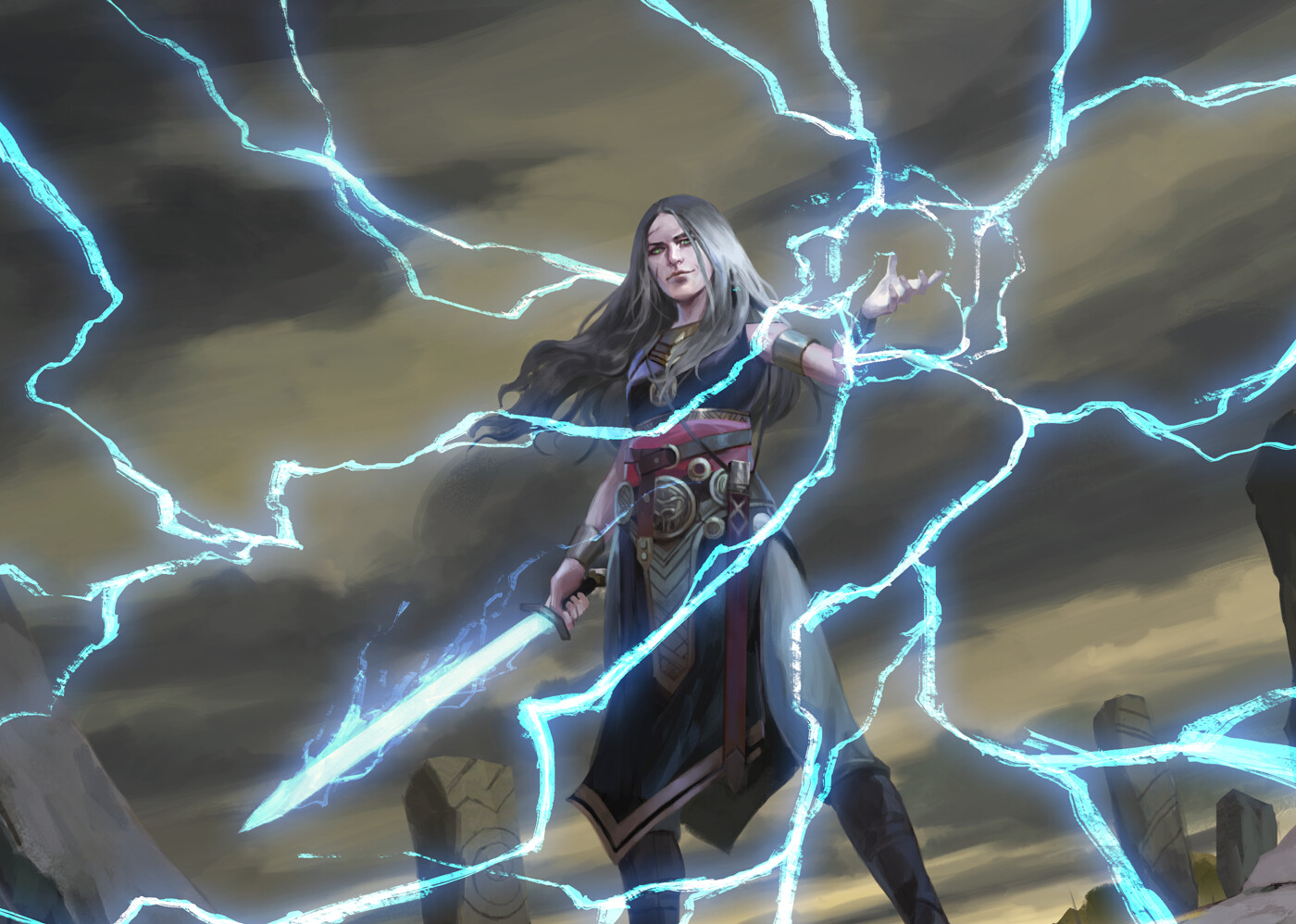















Divine Scholar
While most arcanists take a purely academic approach to mastering their magic, divine scholars combine a studious investigation of the divine with their secular understanding.
A divine scholar may have received their magical power from the gods or simply choose to call upon greater powers to be blessed with their knowledge. In any case, due to their expertise in both the divine powers and arcane academia, divine scholars are often found serving as magic experts for religious groups or as theologians for wizard schools.
Divine Scholar Spells
| Arcanist Level | Spells |
|---|---|
| 2nd | Bless, Healing Word |
| 3rd | Borrowed Knowledge, Lesser Restoration |
| 5th | Beacon of Hope, Revivify |
| 7th | Divination, Guardian of Faith |
| 9th | Commune, Greater Restoration |
Holy Magic
Beginning at 2nd level, you can beseech the divine to channel their powers in your magic. When your spellcasting feature lets you learn an arcanist spell, you can choose the new spell from the cleric spell list or the arcanist spell list. These are arcanist spells for you.
In addition, when you cast a spell that targets one or more creatures, you may choose to restore a number of hitpoints to those creatures equal to the spell slot expended to cast the spell. However, if a creature is at 0 hit points, this grants them one automatic success on a death saving throw instead of restoring hit points.
Divine Guidance
Beginning at 6th level, you can call upon guidance from the heavens to support you and your allies. Once per short
rest, when a creature you can see within 30 feet
(including yourself) fails an ability check, you can use your reaction to add 2d4 to their total, possibly changing the outcome.
Miraculous Healing
At 10th level, you have developed a connection with the divine and have been blessed with a supernatural ability to heal others. Once per long rest, as a bonus action, you can touch a creature and bless them with rapid healing. For the next minute, at the beginning of each of that creature's turns,
they regain Xd4 hit points, where X is half your arcanist
level (rounded down).
In addition, at the end of the one minute duration,
the creature is no longer blinded, deafened, paralyzed,
or poisoned, and is cured of disease.
Divine Knowledge
Beginning at 14th level, you are an expert at petitioning chosen deities for knowledge. You gain the following benefits:
- When you cast the borrowed knowledge spell, you gain proficiency in a second chosen skill for the duration of the spell.
- When you cast the divination spell, you may ask a second question after receiving your answer to the first as part of the same spell.
- When you cast the commune spell, you may ask questions that cannot be answered with a yes or no. Like the divination spell, answers are generally given as short phrases, cryptic rhymes, or omens.
Word of the Gods
Beginning at 18th level, your spells are imbued with ultimate divine knowledge originating from the creation of life.
Whenever a creature fails a saving throw to resist one of your spells, you may choose to additionally afflict them with the effects of the divine word spell. When cast this
way, the divine word spell does not force
celestials, elementals, fey, or fiends
back to their plane of
origin.
















Occultist
Whenever one delves too deep into a study of magic, they inevitably begin to hear a tantalizing promise of greater knowledge and power from some otherworldly being. Those arcanists that embrace this call and promise their loyalty or services to those beings are known as occultists.
Occultists learn to summon the servants and creatures of dangerous planes and bend them to their will. But an occultist must remain wary, lest they find that their will is no longer truly their own.
Occultist Spells
| Arcanist Level | Spells |
|---|---|
| 2nd | Dissonant Whispers, Unseen Servant |
| 3rd | Borrowed Knowledge, Crown of Madness |
| 5th | Spirit Shroud, Summon Lesser Demons |
| 7th | Banishment, Summon Greater Demon |
| 9th | Contact Other Plane, Planar Binding |
Dark Magic
Beginning at 2nd level, your magic is bolstered by the knowledge of ancient beings you study. When your spellcasting feature lets you learn an arcanist spell, you can choose the new spell from the warlock spell list or the arcanist spell list. These are arcanist spells for you.
In addition, you learn the eldritch blast cantrip and you learn to speak either abyssal or
infernal (your choice).
Lesser Invocation
At 6th level, you gain your first gift of power from a dark otherwordly being. From the list of eldritch invocations in the warlock class, choose one invocation that you meet the prerequisites for. You gain the benefits of the chosen invocation.
For this and the "greater invocation" features, when an invocation references your charisma, you may use your intelligence instead. Similarly, arcanist spell slots can be used in place of warlock slots for spells granted by invocations.
Fiendish Servant
Beginning at 10th level, you learn to summon a powerful servant of the being you covenanted with. You learn the summon fiend spell, which counts as an arcanist spell for you and does not require material components to cast.
Once per long rest, you can cast this spell at without expending a spell slot. The spell's level equals the level of the highest spell slot(s) you have at your current level (e.g. 5th level at arcanist level 10 or 9th level at arcanist level 17).
Greater Invocation
At 14th level, you are bestowed with even greater power as your connection to your dark patron grows. Choose two additional invocations that you meet the prerequisites for from the list of warlock eldritch invocations. You gain the benefits of the chosen invocations.
Hellish Master
Beginning at 18th level, you are an unwavering conduit of the will of your patron, allowing you to directly control the actions of fiends you summon. You gain the following benefits:
- Creatures you summon with the summon lesser demons and summon greater demon spells are always loyal to you and hostile only to creatures you choose.
- You can direct the actions of creatures you summon telepathically, requiring no action on your part.
- When you cast the summon lesser demons spell, you choose the result of the d6 roll as well as what specific type of demons you summon.
- When you cast the summon lesser demons, summon greater demon, or summon fiend
spells, they are treated as if you cast them
at one level higher.
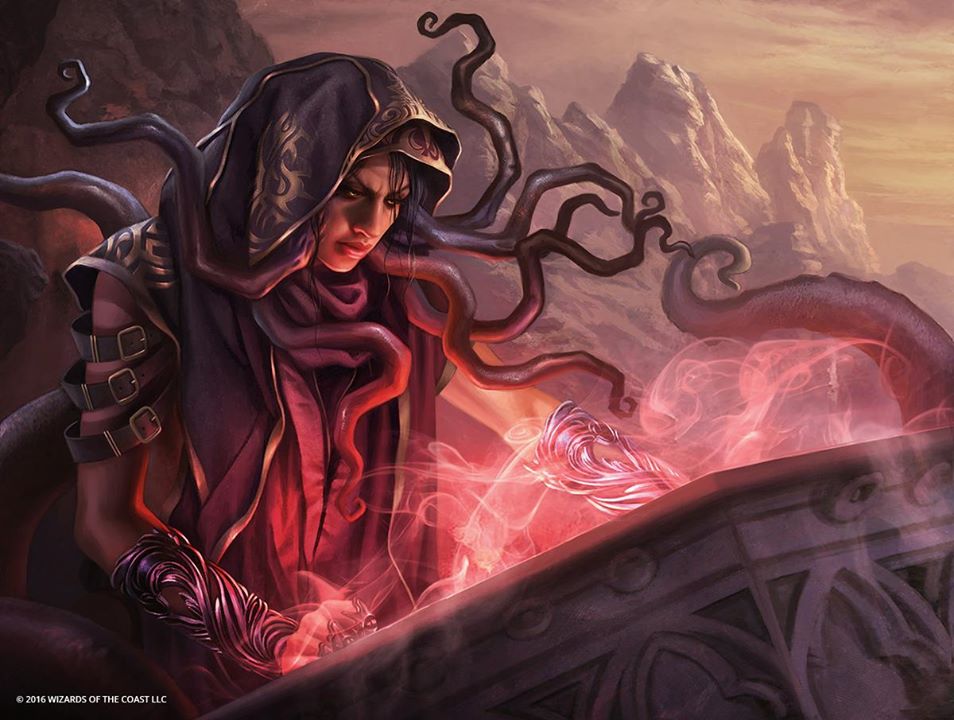












Spell Specialist
Some arcanists believe that deep, tightly-focused specialization is the optimal approach to magic. To do so, these casters heavily emphasize a relatively small number of spells and develop an unrivaled mastery over them.
Known as spell specialists, these arcanists often seek to become an unparalleled virtuoso of their chosen spells, learning to use them better than any other caster can.
Specialty Spells
At 2nd level when you select this branch of study, choose one of the arcanist spells you know of 1st level. That spell becomes one of your "specialty spells". You gain various options to strengthen that spell as you level up.
At 6th level, you choose a second arcanist spell up to 3rd level to become a specialty spell.
At 10th level, you choose a third arcanist spell up to 5th level to become a specialty spell.
Note that you cannot choose any of the spells you create with the "spell writer" feature to be your specialty spells. However, your specialty spells can still be a component of spells you write.
Improved Spells
At 2nd level, you learn to empower your specialty spell with an enhanced property. Choose one of the following options for your specialized spell:
- Expansive. You may increase the area affected by your specialized spell by doubling its dimensions. For example, circular radii are doubled, cones have double their normal length, lines become twice as wide and long, etc. The spell must already have an area to select this option.
- Reaching. The range of your specialized spell is doubled. If the spell originally had a range of touch, its range becomes 15 feet. The spell must not have a range of self to select this option.
- Enduring. The duration of your specialized spell doubles. The spell must have a duration other than instantaneous to select this option.
- Subtle. You ignore any verbal or somatic components for the specialized spell.
- Careful. You may choose number of creatures up to your intelligence modifier in the area of your specialized spell. Those creatures automatically succeed on any saving throws to resist the effects of the spell.
- Versatile. When you cast your specialized spell, you may choose to change its damage type to a type that appears in another one of your spells/cantrips.
When you gain a new specialized spell at 6th and 10th levels, choose one of the options to affect the new spell. The option you select can be the same as or different than the one selected for your first specialized spell.
Versatile Expert
Beginning at 6th level, you become more versatile at twisting your specialty spells in new ways. Once per short rest, when you cast one of your specialty spells, you may choose one of the other options from the "improved spells" feature to augment your spell.
This choice temporarily replaces the original option you selected for that spell for the current cast only. This cannot be done at the same time as the "tweak spell" feature.
Improved/Expert Spells and Blending
Whenever you cast your specialized spell, including when it is cast as part of a blended spell, you may choose to apply selected options from the "improved spells" and "expert spells" features to the spell.
Similarly, if your specialized spell is part of a new spell you create with the "spell writer" feature, your specialty spell retains any options you have selected from these features.
Expert Spells
At 10th level, your specialty spells become even more powerful. Choose one of the following options for each of your specialized spells:
- Potent. Creatures make saving throws with disadvantage to resist the effects of your specialized spell.
- Accurate. You have advantage on attack rolls to hit with your specialized spell.
- Deadly. When you roll damage or healing for your specialized spell, you may reroll any number of the dice once, but you must use the new rolls.
- Sweeping. You may target one additional creature with your specialized spell. The spell must target creatures and must not create multiple projectiles (e.g. magic missile) to select this option.
If your spell would have targeted only one creature without this option, you must complete a short rest before you may use this option again for that spell. - Prolific. Your specialized spell creates a number of additional projectiles equal to one half of the original amount of projectiles (rounded down). The spell must create multiple projectiles (e.g. magic missile or scorching ray) to select this option.
- Swift. You may cast your specialized spell as a bonus action a number of times equal to your intelligence modifier between long rests. The spell must have a casting time of one action to select this option.
Specialty Blend
Beginning at 14th level, it is almost effortless to blend your specialty spells. When you use the spell blending feature and both of the component spells are your specialty spells, the required spell slot for your blended spell is one level lower than normal.
Mastered Spell
At 18th level, you become the unmatched master of your favorite spell. Choose one of your specialty spells. You may select an additional option from the "improved spell" and "expert spell" features to apply to that spell.
Arcanist Spell List
Cantrips
Acid Splash
Blade Ward
Booming Blade
Chill Touch
Control Flames
Create Bonfire
Dancing Lights
Fire Bolt
Friends
Frostbite
Green-Flame Blade
Gust
Light
Lightning Lure
Mage Hand
Mending
Message
Mind Sliver
Minor Illusion
Mold Earth
Poison Spray
Prestidigitation
Ray of Frost
Shape Water
Shocking Grasp
Sword Burst
Thunderclap
True Strike
1st Level
Absorb Elements
Burning Hands
Catapult
Cause Fear
Charm Person
Color Spray
Comprehend Languages
Detect Magic
Disguise Self
Earth Tremor
Expeditious Retreat
False Life
Feather Fall
Fog Cloud
Grease
Hideous Laughter
Ice Knife
Identify
JumpvMage Armor
Magic Missile
Ray of Sickness
Shield
Silent Image
Silvery Barbs
Sleep
Tasha's Caustic Brew
Thunderwave
Witch Bolt
2nd Level
Acid Arrow
Aganazzar's Scorcher
Alter Self
Arcanist's Magic Aura
Blindness/Deafness
Blur
Crown of Madness
Darkness
Darkvision
Detect Thoughts
Dust Devil
Earthbind
Enhance Ability
Enlarge/Reduce
Flaming Sphere
Gust of Wind
Hold Person
Invisibility
Levitate
Maximillian's Earthen Grasp
Mind Spike
Mirror Image
Misty Step
Nathair's Mischief
Phantasmal Force
Rime's Binding Ice
Scorching Ray
See Invisibility
Shatter
Snilloc's Snowball Swarm
Spider Climb
Suggestion
Tasha's Mind Whip
Vortex Warp
Warding Wind
Web
3rd Level
Bestow Curse
Blink
Clairvoyance
Counterspell
Dispel Magic
Enemies Abound
Erupting Earth
Fear
Fireball
Flame Arrows
Fly
Gaseous Form
Glyph of Warding
Haste
Hypnotic Pattern
Intellect Fortress
Lightning Bolt
Major Image
Melf's Minute Meteors
Protection from Energy
Sending
Sleet Storm
Slow
Stinking Cloud
Thunder Step
Tidal Wave
Tongues
Wall of Sand
Wall of Water
Water Breathing
Water Walk














4th Level
- Arcane Eye
- Banishment
- Blight
- Charm Monster
- Confusion
- Control Water
- Dimension Door
- Dominate Beast
- Elemental Bane
- Fire Shield
- Greater Invisibility
- Ice Storm
- Sickening Radiance
- Stoneskin
- Storm Sphere
- Vitriolic Sphere
- Wall of Fire
- Watery Sphere
5th Level
- Arcane Hand
- Animate Objects
- Cloudkill
- Cone of Cold
- Control Winds
- Dawn
- Dominate Person
- Enervation
- Far Step
- Hold Monster
- Immolation
- Legend Lore
- Scrying
- Seeming
- Skill Empowerment
- Synaptic Static
- Telekinesis
- Teleportation Circle
- Transmute Rock
- Wall of Light
- Wall of Stone
6th Level
- Arcane Gate
- Chain Lightning
- Circle of Death
- Contingency
- Disintegrate
- Eyebite
- Globe of Invulnerability
- Investiture of Flame
- Investiture of Ice
- Investiture of Stone
- Investiture of Wind
- Mass Suggestion
- Mental Prison
- Move Earth
- Scatter
- Sunbeam
- True Seeing
- Wall of Ice
7th Level
- Crown of Stars
- Delayed Blast Fireball
- Dream of the Blue Veil
- Etherealness
- Finger of Death
- Fire Storm
- Plane Shift
- Power Word Pain
- Project Image
- Reverse Gravity
- Symbol
- Teleport
- Whirlwind
8th Level
- Abi-Dalzim's Horrid Wilting
- Dominate Monster
- Earthquake
- Feeblemind
- Incendiary Cloud
- Maddening Darkness
- Power Word Stun
- Sunburst
9th Level
- Gate
- Imprisonment
- Invulnerability
- Meteor Swarm
- Power Word Kill
- Psychic Scream
- Time Stop
- Wish
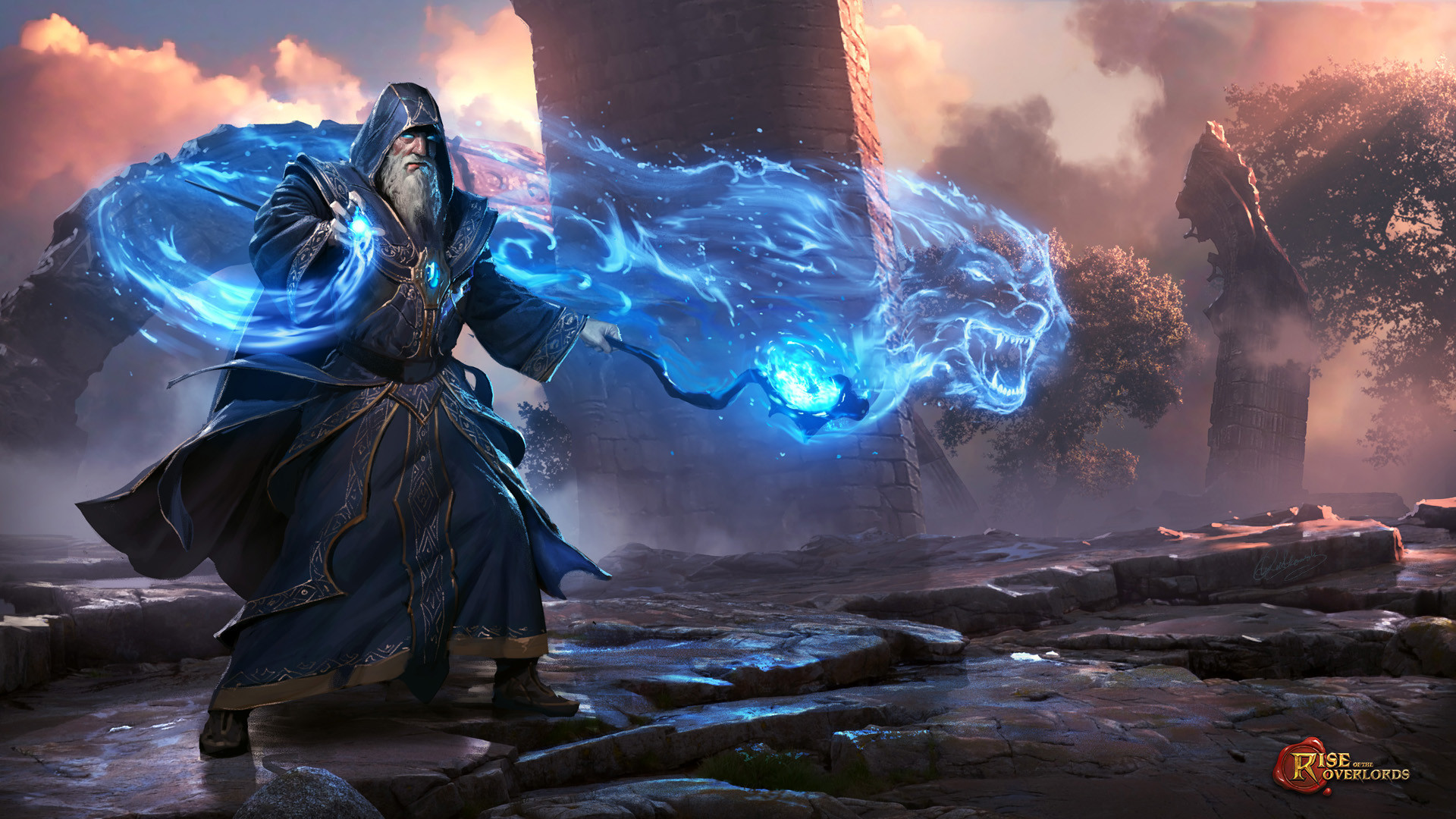














Multiclassing
Prerequisites. To qualify for multiclassing with the Arcanist
class, you must meet these prerequisites: 13 Intelligence.
Proficiencies. When you multiclass into the Arcanist class,
you gain no proficiencies.
Spell Slots. You add all your arcanist levels for the purposes of
determining multiclass spell slots.
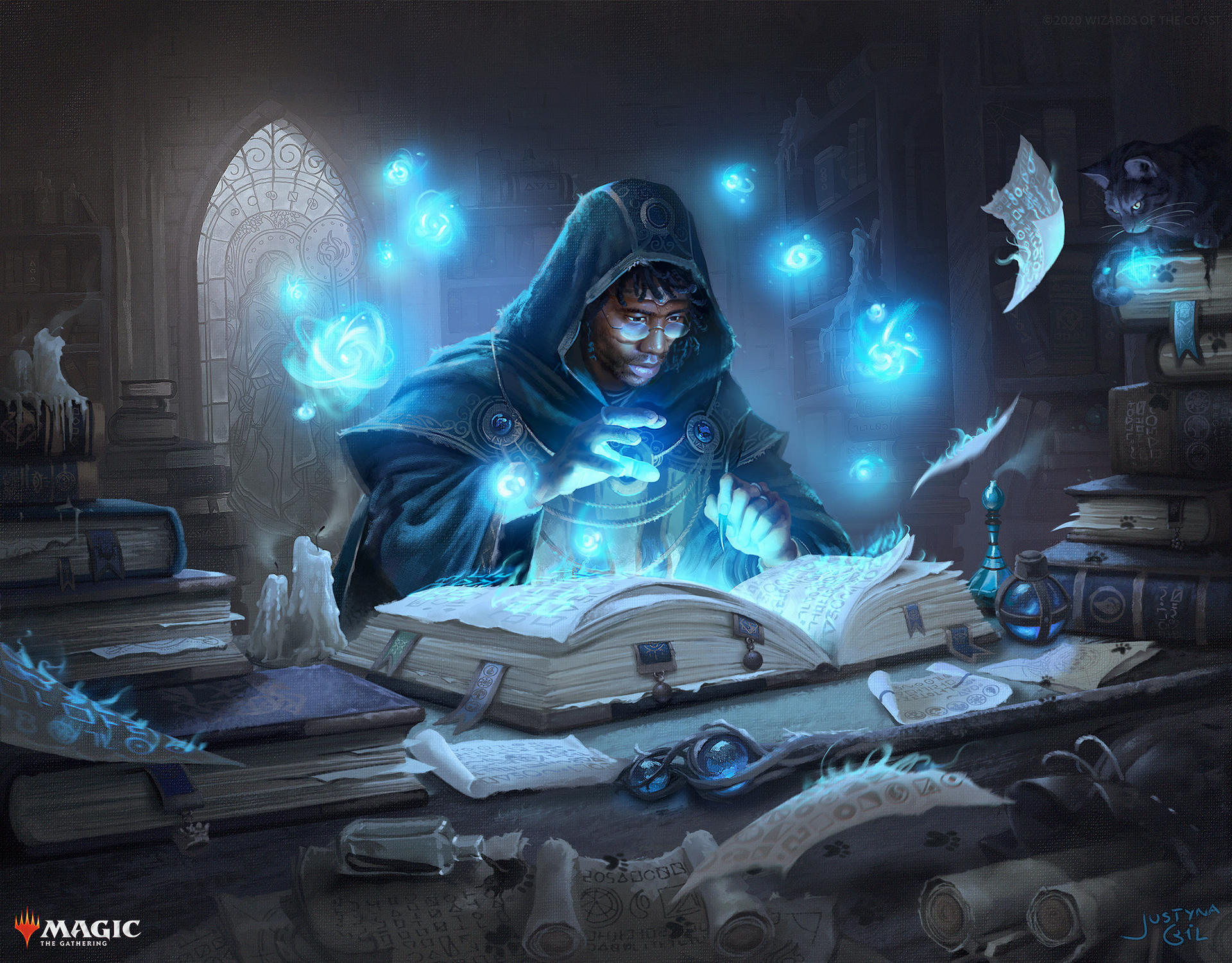
The Arcanist
A fullcaster class for those who like to homebrew spells. Twist arcane magic to your liking and even invent new spells with six arcanist branches: the Arcane Savant, Twilight Sage, Elementalist, Divine Scholar, Occultist, and Spell Specialist.
Art Credits:
Page 2: A Trial of Sorcerers by Skyzocat
Page 4: Diablo Wizard by Jonas Jakobsson
Page 6: Armor Handler by Docatto
Page 7: Angel by MrMascara2
Page 8: Try Me by Rod Mendez
Page 9: Wushi-1 by Sun Kai
Page 10: Stromkirk Occultist by M. Villeneuve
Page 12: The Archivist by Juliedillon
Page 13: Wizard Overlord by Greg Rutkowski
Page 14: Arcane Endeavor by JustynaDura
See Dragonshard's GM Binder profile for more homebrew classes inspired by Pathfinder.